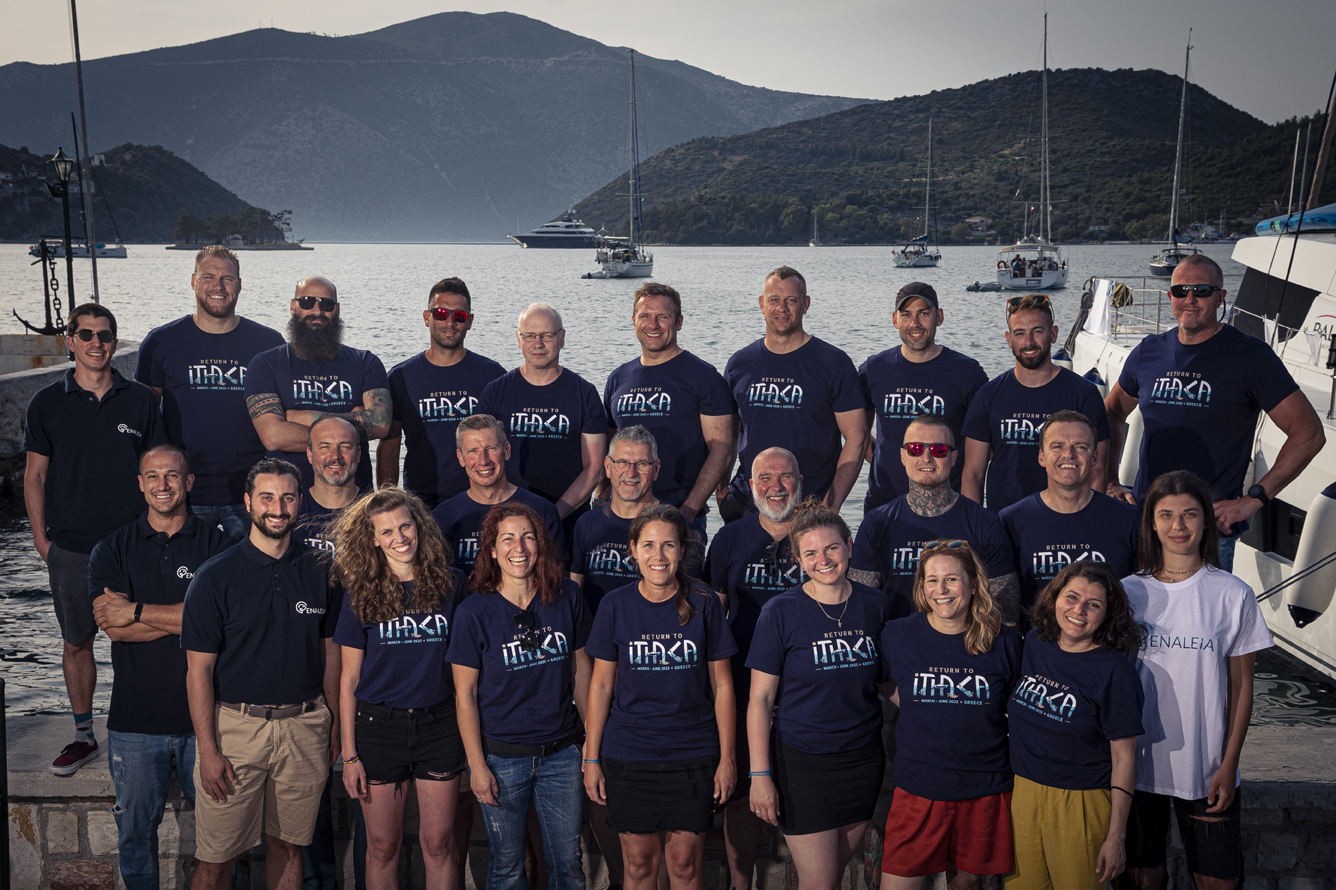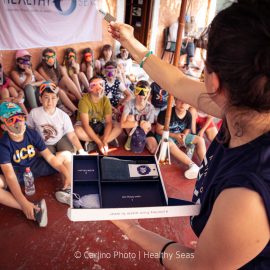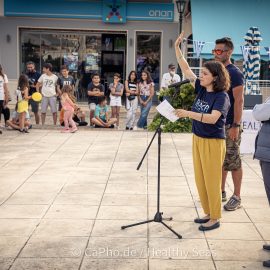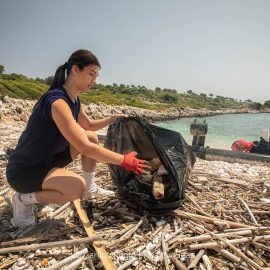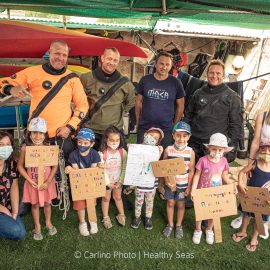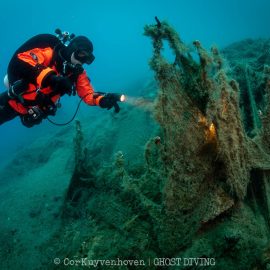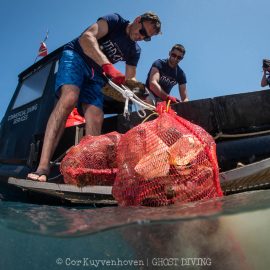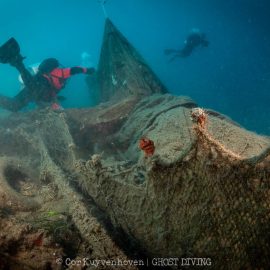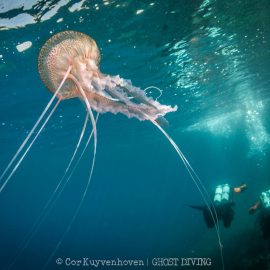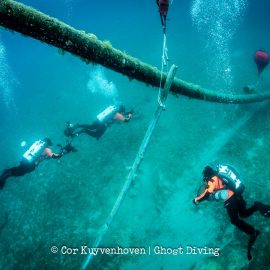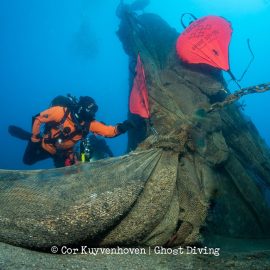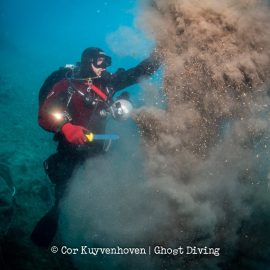On World Oceans Day we are proud to announce the completion of another massive marine protection effort on the island of Ithaca, in Greece.
Last year, our record-breaking cleanup project together with many partners resulted in 76 tons of marine litter being removed from seas and beaches in 8 days. This devastation was the result of a fish farm that was abandoned 10 years prior, wreaking havoc to the environment, community, maritime traffic.
It turns out that the same aquaculture was running another facility at another bay on the island, and instead of removing the nets, rings, floats when they ceased operations, the apparatus was sunk to the bottom of the sea. It is estimated that 640,000 tons of fishing gear are lost or abandoned annually in the seas and oceans 1. The phenomenon takes the name ‘ghost fishing’ because the nets appear almost invisible underwater trapping and killing all manner of marine animals. It is not clear if the UNEP statistic also accounts for entire ‘ghost farms,’ a sad but true occurrence in Greece.
The main difference of this ghost net cleanup project is that the owner of the abandoned fishing gear we discovered and removed, has a name. We have confronted this environmental crime 2 years in a row, worked toward restoring it, as well as understanding who is responsible and, in a position, to do something about it. The matter is very complicated. Our goal with this project is to raise awareness about ‘ghost farms’ and to put an end to them.
With support from Hyundai, together with Ghost Diving and many other partners, we organised a clean-up project from March until June with the help of local fishers and volunteer divers focusing on 14 different locations around the island, including the ghost farm but also the harbour of Vathy. In total, about 23,500 kg of waste were removed of which, 18,500 kg were nets and 5,000 kg other types of marine litter, including several hundred meters of gillnets and long lines.
To kick off our “Return to Ithaca”, we organised a public awareness event at the main square which included the screening of a short documentary about the efforts of 2021 and a large scale photography exhibition. Education programmes and activities throughout the day were attended by approximately 180 children, meaning to say by almost all children living on the island.
Twenty-five (25) big fish farming nets were removed from the ‘ghost farm’ in the area of Kalavri, in Ithaca. The coordinated effort begun with volunteer divers from the Netherlands, UK, Lebanon, Hungary and Greece, cutting and attaching lift bags to the nets. Once at the surface, a barge with crane lifted the nets out of the water and placed them in containers that will be used to transport the nets for recycling. These nets will be regenerated together with other nylon waste into ECONYL® yarn, the basis for new products such as socks, swimwear, activewear, carpets and more.
The locals of Ithaca were aware of the destruction but didn’t have the means to do something about it besides witnessing their homeland being ruined by unethical business practices. We felt their appreciation and gratitude every day of our project, for our efforts to protect their island, two years in a row.
Prevention is the only way to stop the ghost fishing phenomenon and halt ocean degradation. To this end, besides the cleanup activities, we have been working since 2017 with Enaleia with its Mediterranean Clean Up project, to educate fishers in Greece and Italy and collect their waste nets before they end up in a landfill or worse, the natural environment. In the framework of the project in Ithaca, 5 local fishers were mobilised to limit fishing activity and instead collect plastic from remote locations around the island.
Other key partners include Odyssey Outdoor Activities, Iaseas, Kefalonia Fisheries, the Municipality of Ithaca, the Hellenic Coast Guard. The project is held under the Auspice of the Hellenic Ministry of Maritime Affairs and the Hellenic Ministry of Environment & Energy.



